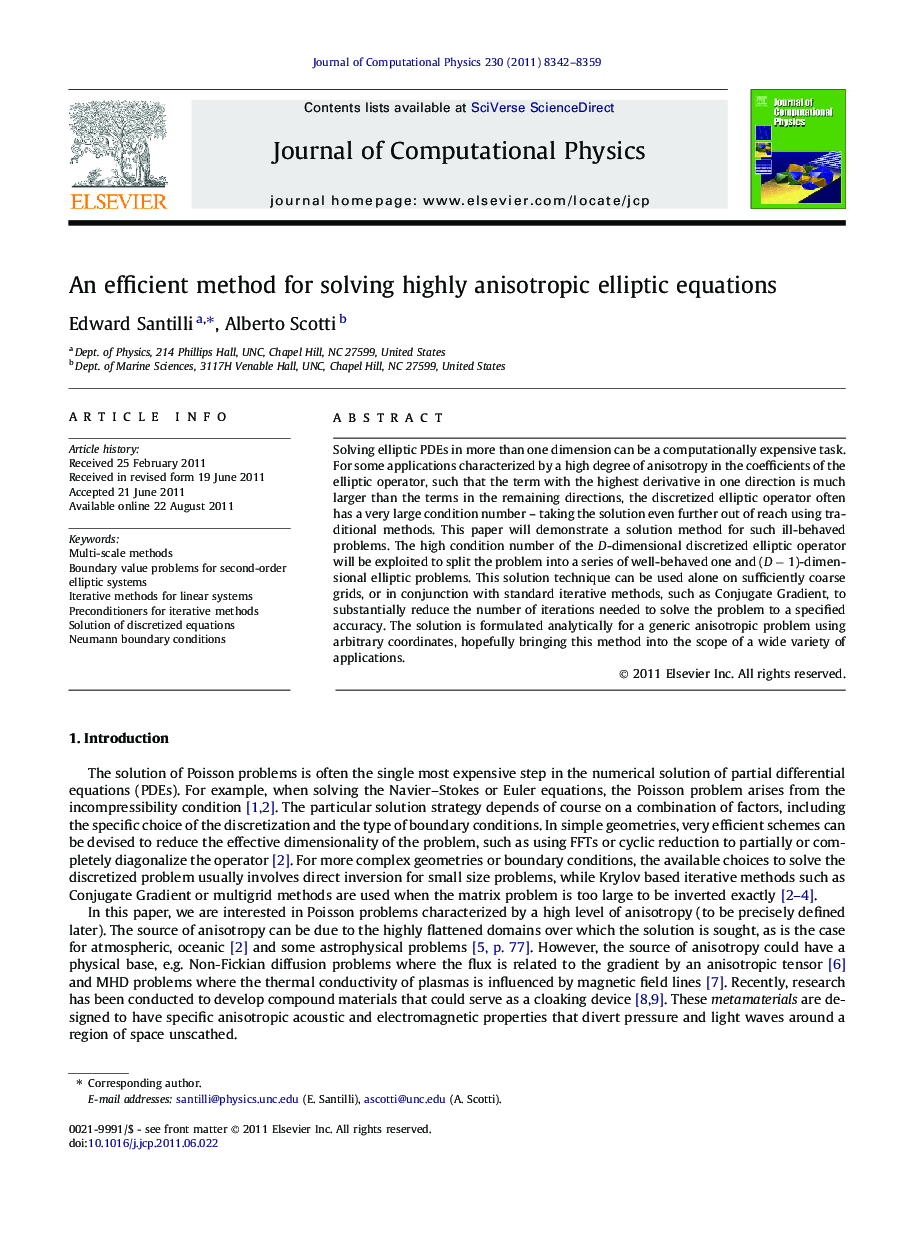| Article ID | Journal | Published Year | Pages | File Type |
|---|---|---|---|---|
| 518986 | Journal of Computational Physics | 2011 | 18 Pages |
Solving elliptic PDEs in more than one dimension can be a computationally expensive task. For some applications characterized by a high degree of anisotropy in the coefficients of the elliptic operator, such that the term with the highest derivative in one direction is much larger than the terms in the remaining directions, the discretized elliptic operator often has a very large condition number – taking the solution even further out of reach using traditional methods. This paper will demonstrate a solution method for such ill-behaved problems. The high condition number of the D-dimensional discretized elliptic operator will be exploited to split the problem into a series of well-behaved one and (D − 1)-dimensional elliptic problems. This solution technique can be used alone on sufficiently coarse grids, or in conjunction with standard iterative methods, such as Conjugate Gradient, to substantially reduce the number of iterations needed to solve the problem to a specified accuracy. The solution is formulated analytically for a generic anisotropic problem using arbitrary coordinates, hopefully bringing this method into the scope of a wide variety of applications.
► We develop an iterative method for solving anisotropic elliptic PDEs. ► This converts 3D anisotropic elliptics into a series of 2D isotropic elliptics. ► The method can generate preconditioned initial guesses for Krylov methods. ► This method alone will converge faster than Krylov methods on certain grids. ► The method is generalized to solve N-dimensional elliptics in general coordinates.
